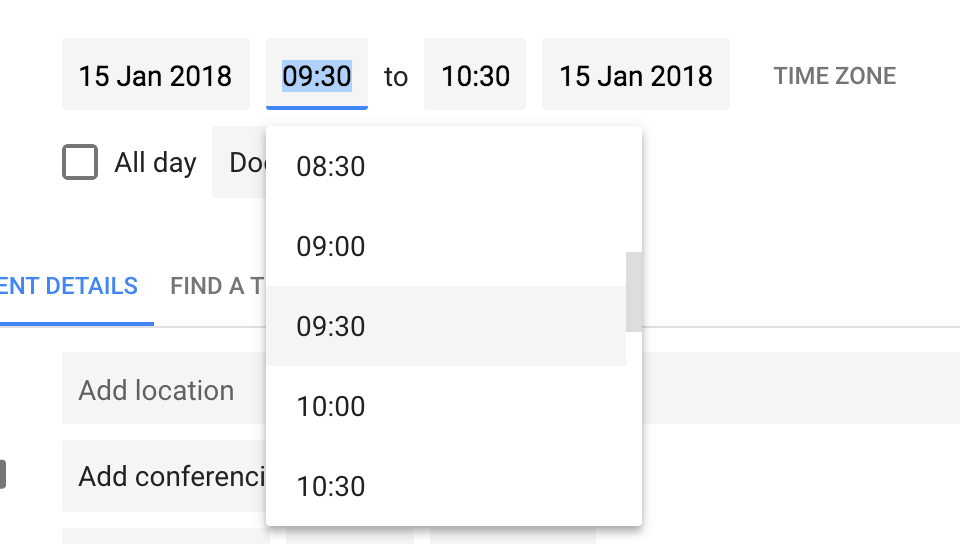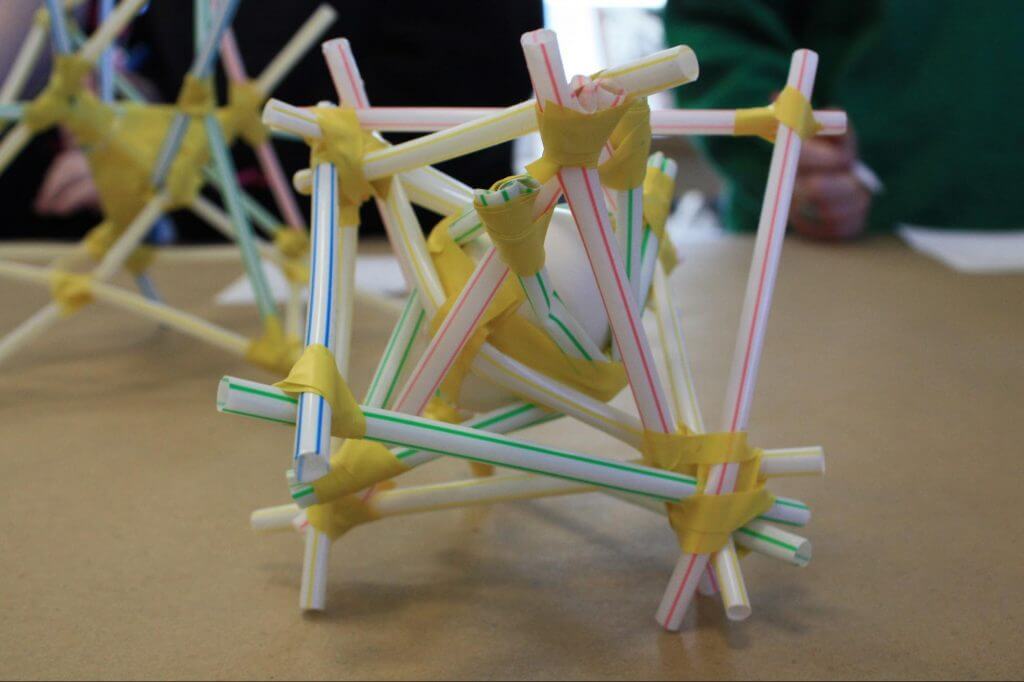Sales Meeting Ideas to Keep Your Team Motivated and Focused

Contents
Companies across the globe share a common problem: meetings. They have too many of them, they last too long, or they include people that don’t really need to be there — or, in many cases, a combination of all three.
Whatever the reason, the fact remains that too many companies are still holding meetings that aren’t as productive or purposeful as they could be.
According to stats reported by Erik Devaney of Drift, the average employee wastes 31 hours a month in unproductive meetings, while the estimated cost of unnecessary meetings to U.S. businesses sits at $37 billion.
Indeed, HubSpot Director Dan Tyre hates meetings. In a recent conversation, he told me: “Meetings are a hangover from the 1980s. They sucked back then, and they’re even worse now.”
It’s hard to argue.
According to stats reported by Erik Devaney of Drift, the average employee wastes 31 hours a month in unproductive meetings, while the estimated cost of unnecessary meetings to U.S. businesses sits at $37 billion.
Of course, this doesn’t mean we shouldn’t have meetings — it just means we need to rethink how we have them. We need to come up with sales meeting ideas that maximize our time and effort.
While the issue spans all industries and departments, sales teams need to be especially aware of wasting time in meetings since time in meetings is time they’re not selling — and that means lost revenue.
Rules for Holding a Productive Sales Meeting
Before we get into sales meeting ideas to keep your sales team motivated and focused, let’s make sure you’ve got the basics right first. Here are some general rules for holding productive meetings (sales or otherwise):
Set a Single Goal
Each meeting should revolve around achieving one specific goal. Meetings geared around more than one goal tend to lose focus, so if there are multiple goals on the agenda, seriously consider whether you can leave less-pressing goals for another time.
Can’t think of a goal?
Then you probably shouldn’t be having the meeting.

Assign a Leader
All meetings should have someone in charge who’s responsible for ensuring things stay on track.
Designate this person ahead of time – this will allow them time to consider their role in the meeting as they plan for it.
Keep Meetings as Short as Possible (and Stick to Your Schedule)
Meetings are typically scheduled in half hour or hour-long slots. I imagine a big reason for this is that, while you can overwrite it, 30 minutes is the default setting in Google Calendar.

While some meetings might require a half an hour or more, many don’t.
A purely motivational meeting might only need 10 minutes, while a brainstorming meeting might take a full hour.
Be realistic about how much time you need, and don’t fall into the classic trap of scheduling meetings in half hour or hour-long blocks, just because Google’s configured that way, and that’s what you’re used to.
In fact, Gary Vaynerchuk advocates scheduling meetings in very short and very precise time slots — as little as 7 or even 5 minutes — and why not? Knowing there’s less than 10 minutes to achieve a goal and that the clock’s ticking is a great motivator. It will also prevent a classic time-waster – dragging meetings out to fill the whole half hour or hour just because your calendar states you should be there for that long.
According to Dan, all his sales meetings are kept to a strict 25-minute time limit. “The last thing you want is somebody droning on about ridiculous stuff nobody cares about,” he said.
Why 25 minutes? “That’s the way we live today. We’re all busy.” And your sales team will thank you for it, as it gives them an extra five minutes to check their emails. If you don’t have 25 minutes’ worth of stuff to get through, Dan suggests either cancelling the meeting or changing it out for a ten-minute meeting.
Sales Meeting Agenda
Part of making sure that sales meetings are as productive as possible and don’t waste anyone’s precious time is creating an optimal sales meeting agenda.
Not only do you need your sales meetings to be educational and motivational, but you also want your reps to look forward to the meetings and to enjoy participating in them.
It’s a rare opportunity in the working week to come together for a spot of team bonding – and, according to Dan, a bit of fun.
So don’t underestimate the importance of crafting the perfect meeting agenda, and continue honing it through trial and error over the years.
Your most successful segments will be the parts of the meeting that your reps regularly look forward to, that get them talking.
How can you achieve this?
Dan believes that everything you try to squeeze into your meeting should be impactful. Simply put, cut the fluff.
In our chat, he shared his own sales meeting structure: one that leaves no room for fluff whatsoever.
Welcome and introductions
The welcome and introductions section doesn’t need to be long – in fact, it shouldn’t be – but it should set the tone for the meeting and ensure that everyone feels comfortable.
If there’s anyone new in the meetings Dan asks them three ice-breaker questions. The first two: Who are you? How long have you been at HubSpot? The third question is something a little quirky, such as “What’s your favourite cheese?” or “Where was the last place you traveled to?”
Review from last week
Dan says: “It’s at this point that the team asks themselves: ‘Are there any hanging chads from last week?’”
If so, consider which of them should be rolled over into this week – ensuring continuity is key to making sure that all points are addressed and nothing falls through the cracks.
Pipeline
One of the most impactful parts of the meetings, the Pipeline section is all about ensuring the team is on track to hit its target.
Dan says: “We win as a team, we lose as a team.” This isn’t about shaming anyone. And if the numbers aren’t good, he encourages staff “not to fret about it” and to remember that all organizations have good and bad months.
No more than three things of note
This section of the meeting is about informing the team – but never with more than three points. If there are more than three things to bring up, Dan says, they can’t all be that important and can be rolled over into the next meeting.
Learn a new skill in seven minutes
Next, Dan includes an educational portion in the meeting, where he’s able to help upskill his team. According to Dan, seven minutes is enough to learn a new skill.
FAQs
Dan warns meeting leaders not to let the FAQ section bust their time limit.
“I’m pretty hardcore about my 25 minutes,” he says. “If it’s a great question and timely I’ll say ‘Okay, we’ll take two minutes to answer that now.’ Or I’ll say ‘That’s a great question, let me record a video and send it out to the team.’ Or I’ll say ‘Is that bothering other people? Is that a big deal for everybody?’ If it is, I’ll take the extra five minutes.”
If the question is important yet not timely, Dan recommends rolling it over to the next meeting if the clock is running down.
Motivational ending
This is your moment to ramp up your team to smash their targets.
“Let’s go for it, let’s finish strong,” says Dan. This is all about boosting team motivation, and it’s got to be high energy.
He explains: “It’s like a football team: you go in and you go BOOM!”
Focus on the Positive
Save grievances for one-on-one meetings — group meetings should only mention achievements and what went well.
There are rarely any benefits to discussing mistakes publicly. It’s embarrassing for the person (or people) involved, and demotivating for the rest of the team. It also paints the leaders concerned in a poor light, and is likely to (negatively) impact their subordinates’ feelings towards them.
Consider Your Remote Workers
Companies with remote workers — whether just one or two or a whole team — have a whole different kettle of fish to fry.
It’s far easier for remote workers to become distracted and zone out from a meeting than it is for workers who are physically present to do the same. It’s also more difficult, if not impossible, to implement some of the concepts included below. 
This means you have to be extra careful when holding meetings that include remote workers. Even more so if your meeting includes both on-site and remote workers (since it’s far too easy for remote workers to feel excluded and become disengaged).
If this applies to you, here are a few things to keep in mind:
- Keeping meetings as short as possible is always important. It’s even more important when remote workers are involved.
- Make sure everyone gets the chance to have their say.
- Treat remote workers as if they’re in the room.
- Ensure all participants speak loudly, clearly, and to everyone – whether they’re in the room or not.
- Invest in quality equipment. Get this bit wrong and your remote workers might as well not be in the meeting at all.
Sales Meeting Ideas to Keep Your Team Motivated and Focused
Once you’ve got the basics of running a productive meeting down, you should be ready to diversify the content of your meetings and explore new ways to keep your sales team motivated and focused throughout them.
Just keep in mind that the contents of any meeting – sales or otherwise – will vary according to the attendees and their hierarchy. A meeting between a CEO and CMO would, for example, be very different than a meeting between a CMO and their team of executives. The structure would likely change again if the meeting consisted of a CMO or head of sales and a group of new employees.
Make It Fun
When it comes to the best sales meeting ideas, ensuring they’re fun and enjoyable is key for employee engagement.
Dan reports, “If those guys or women don’t leave the sales meeting totally pumped, thinking you’re pretty funny, then it wasn’t a good meeting. And if you’re not funny, find somebody who can be funny. You have to be impactful, you have to add value, you have to make sure it’s all ready to go. And if you do that you’ll be highly successful.”
To do this, Dan approaches his meetings the way he would a stand-up set. He even “themes” them.
“Have you ever done a sales meeting in your pajamas?” he asks. “You have to have your costumes. Bring your dog to the sales meeting. If you don’t have a dog, get a rental dog.”
“You just want to keep it loose,” he says. “Keep it fun. Give them a little information, but they should stream out of there going, ‘Okay, I’m not going to forget that meeting where everybody had their dog.’ And then you’ve accomplished your goal.”
Share Inside Information
Companies that are transparent have happier and more engaged employees – primarily because being upfront and honest with your employees breeds a culture of trust and openness, and a feeling that you’re all working towards a common goal.
To start embracing a more open and honest culture in your company, make sharing information a regular feature of sales meetings.
Ask Staff to Roleplay
A few days ahead of the meeting, give your staff a theme and ask them to prepare a roleplay based on it. In theory this could be anything, but here are few ideas that make sense in a sales environment: 
- How they overcame a tricky objection.
- The hardest pitch they ever did.
- Their most embarrassing moment as a salesperson.
- How they dealt with an argumentative prospect.
You could actually get more specific with some of these. For example, you might expand that last point to look at things like dealing with a prospect who:
- Thinks they’re more knowledgeable than you in your area of expertise
- Accuses you of lying
- Claims to be interested but will only talk to someone above you
At a minimum, roleplays are usually lots of fun, but they can also be really educational – especially if you encourage more experienced members of staff to act out scenarios that might be new to your less-experienced staff.
Don’t force staff to participate, however — you won’t achieve much by embarrassing your team. That said, roleplays are crazy valuable when it comes to honing sales skills. Anyone who’s not keen on role playing in front of their colleagues should still be roleplaying somewhere a little more private.
“Role-plays are the most under-utilized, as well as the most under-appreciated, sales training tool in the entire sales industry.” Marcus Sheridan, The Sales Lion
Play a Game (with Prizes)
Games that are designed to help your staff work together can help strengthen relationships and boost confidence.
There are countless ideas for team-building games online so I won’t go into much detail now, but here are some quick suggestions for games that I think work well and are easy to organize.
Truth and lies – ask each person to think up two facts about themselves, and one lie. The “facts” are then shared with the group, and the rest of the team is challenged to guess which one’s the lie.
Scavenger hunts – put your team in pairs and give them a list of silly tasks to complete – things like locating a hard-to-find item or taking a selfie with a stranger. For maximum team-building brownie points, make sure you pair up team members who haven’t yet bonded.
The egg drop – split your team up into small groups and challenge them to make a contraption which will house an uncooked egg (something like what you see below) and prevent it from breaking when dropped onto a hard surface.

Hold a (Short) Training Session
Pick one topic and hold a mini training session geared around sharpening your staff’s skills in that area, or teaching a new skill. 
The first time you do this, you’re probably going to want to take on the role of trainer yourself; however, I’d encourage you to open future slots up to your whole team (that said, as with the roleplaying, don’t force anyone to take part — it’s better for everyone if all participants are willing).
Hold an Impromptu Awards Show
Awards ceremonies are often reserved for the work Christmas party or another annual get-together. That’s fine, but it frequently means that smaller achievements go largely unrecognized.
In addition to an “official” annual ceremony, acknowledge your team’s smaller wins with impromptu awards during one of your regular meetings (complete with rewards, of course).
Surprise Your Staff
Hold your meeting at the end of the day and surprise your staff with a non work-related activity (food and drinks are usually a safe bet — just make sure to consider everyone’s dietary requirements and what non-drinkers/drivers might enjoy). 
This is one of those meetings that you should probably schedule for a half an hour or even an hour. Just make sure to let your team know ahead of time when they should be wrapping up for the day and heading to the meeting room.
Mix Things Up
Avoid following a set agenda. Rinse and repeat, and your team is quickly going to become bored. Even worse, they may well struggle to remember the details of the meeting (it’s a common phenomenon called attentional saturation).
Prevent this by mixing up the format you use, the activities you plan, and the length of meetings.





